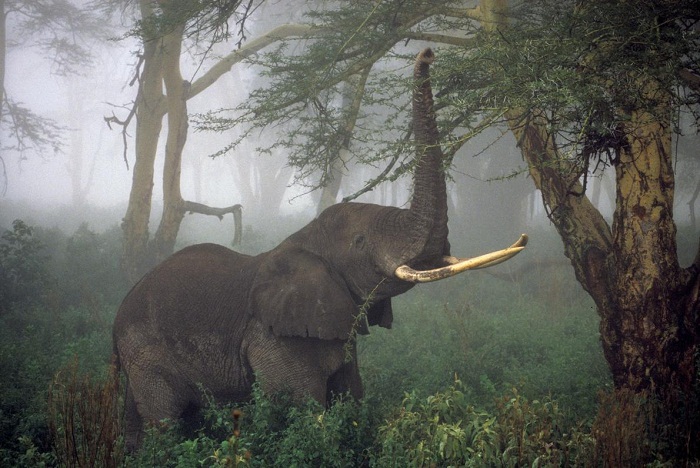African Elephant Numbers Plummet 30 Percent, Landmark Survey Finds

The much anticipated results of the largest ever continent-wide wildlife survey, the Great Elephant Census, will be released tomorrow at the World Conservation Congress in Hawaii. The worrying finding: Africa now has 352,271 savanna elephants left in 93 percent of the species’ range. The aerial survey covered 18 African countries. In 15 of those, where information on previous populations existed, 144,000 elephants were lost to ivory poaching and habitat destruction in less than a decade. The current yearly loss—overwhelmingly from poaching—is estimated at 8 percent. That’s about 27,000 elephants slaughtered year after year. Forest elephants, which live in central and West Africa, were excluded from the census because they’re nearly impossible to spot from the air. But a 2012 ground study indicates that these elephants too are highly threatened by poaching and habitat loss. The census was funded by Microsoft founder Paul G. Allen and took just under three years to complete. Led by the nonprofit Elephants Without Borders, which is based in Botswana, the survey involved a team of 90 scientists, six NGOs, and two advisory partners: the Kenya-based conservation organization Save the Elephants and the African Elephant Specialist Group, made up of experts who focus on the conservation and management of African elephants. The survey’s results, published in the journal PeerJ, couldn’t have come at a more important time. Later this month elephants will be high on the agenda at the triennial meeting in Johannesburg, South Africa, of the Convention on International Trade in Endangered Species of Wild Fauna and Flora (CITES), the body that regulates international trade in certain threatened animal species. With poaching at such dire levels, the conference may be pivotal in setting a new direction for elephants.

